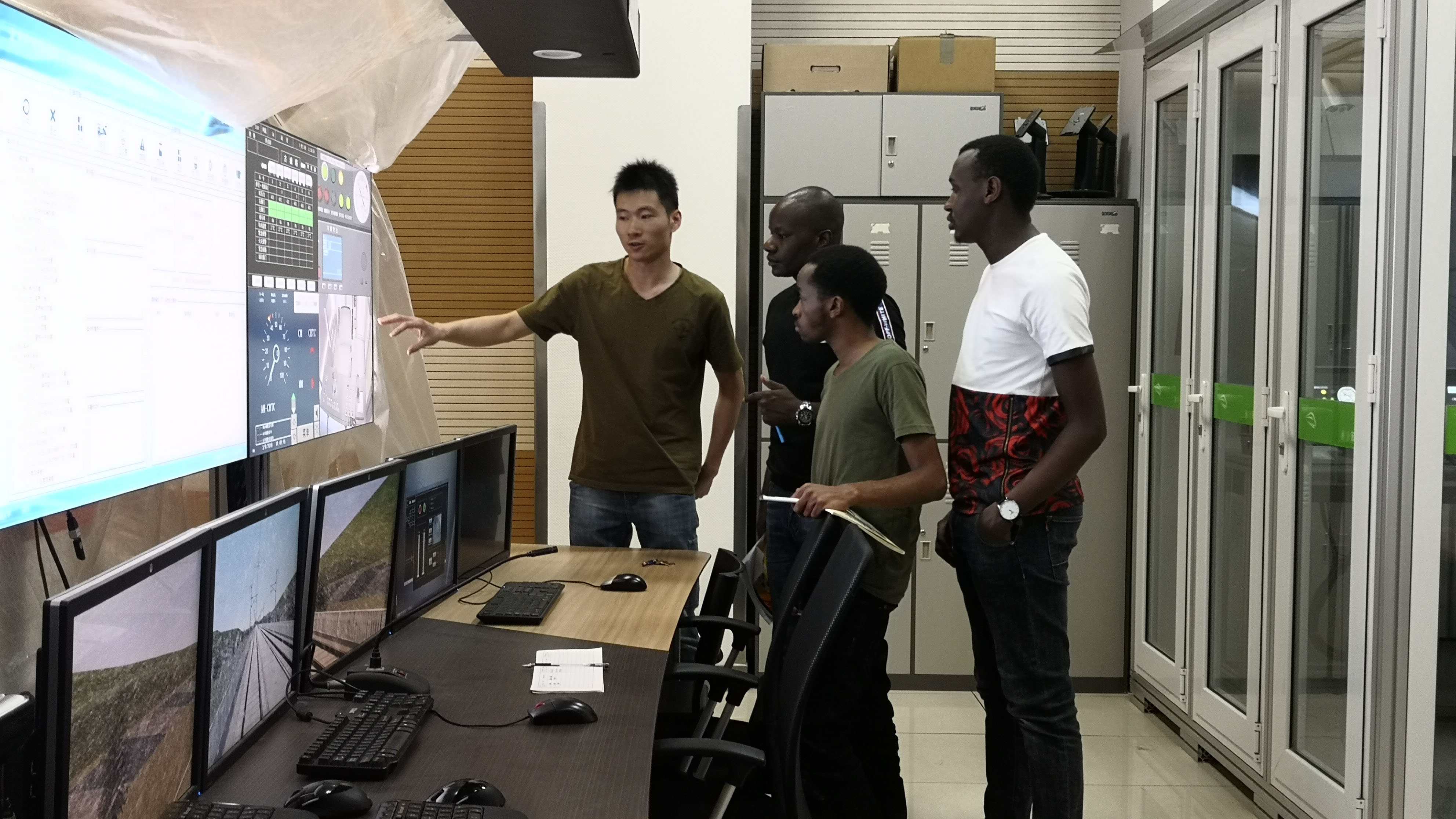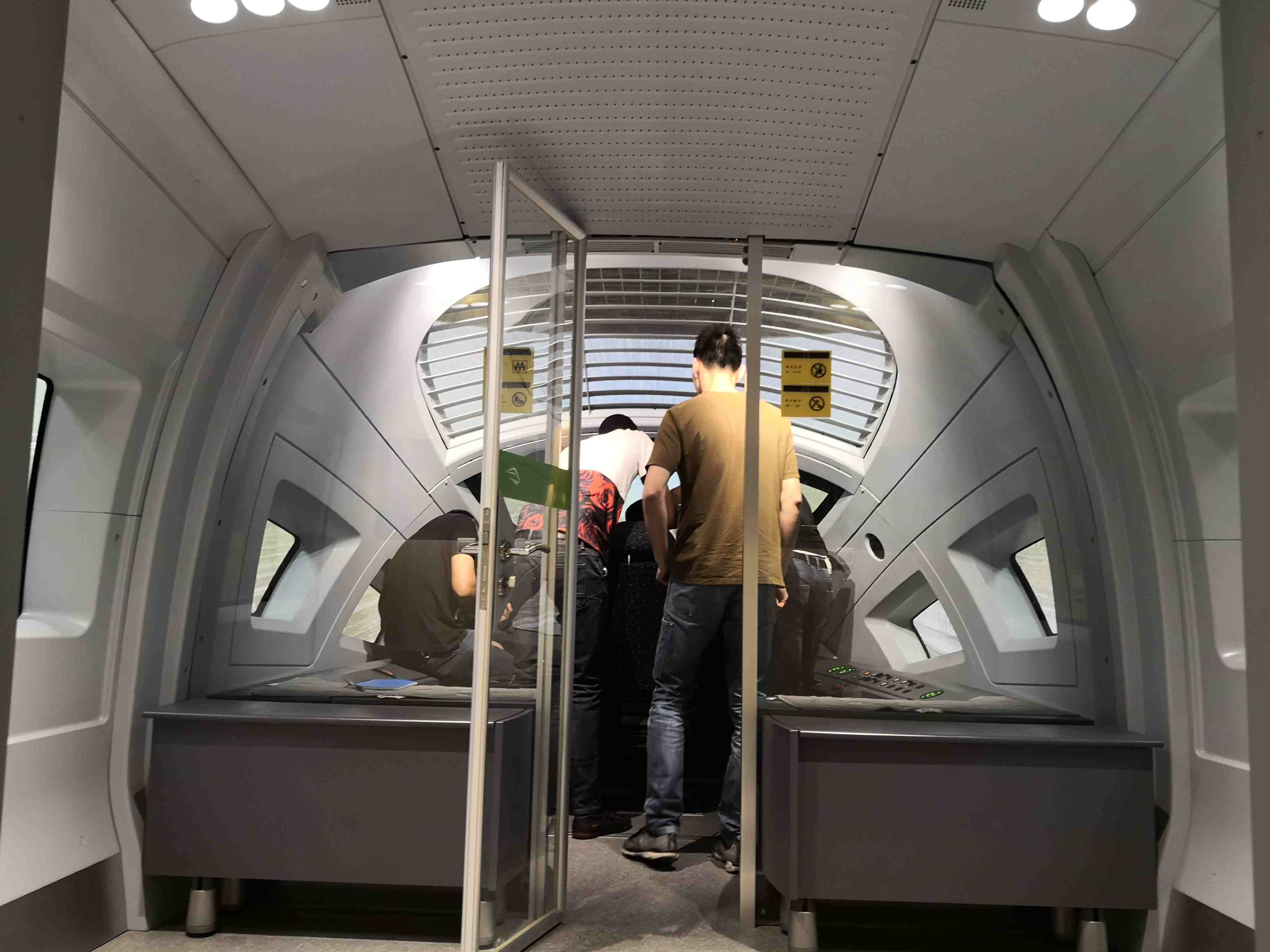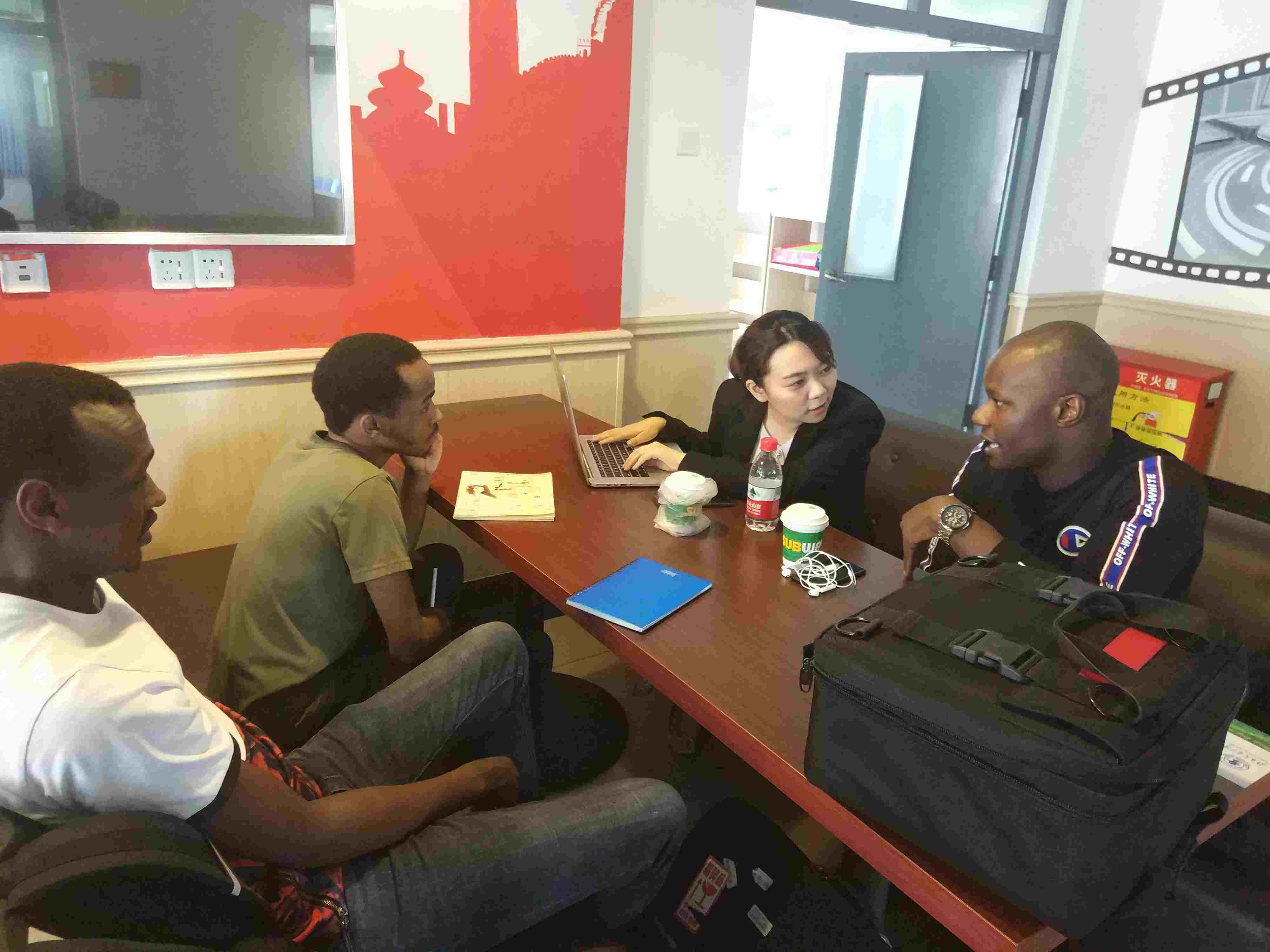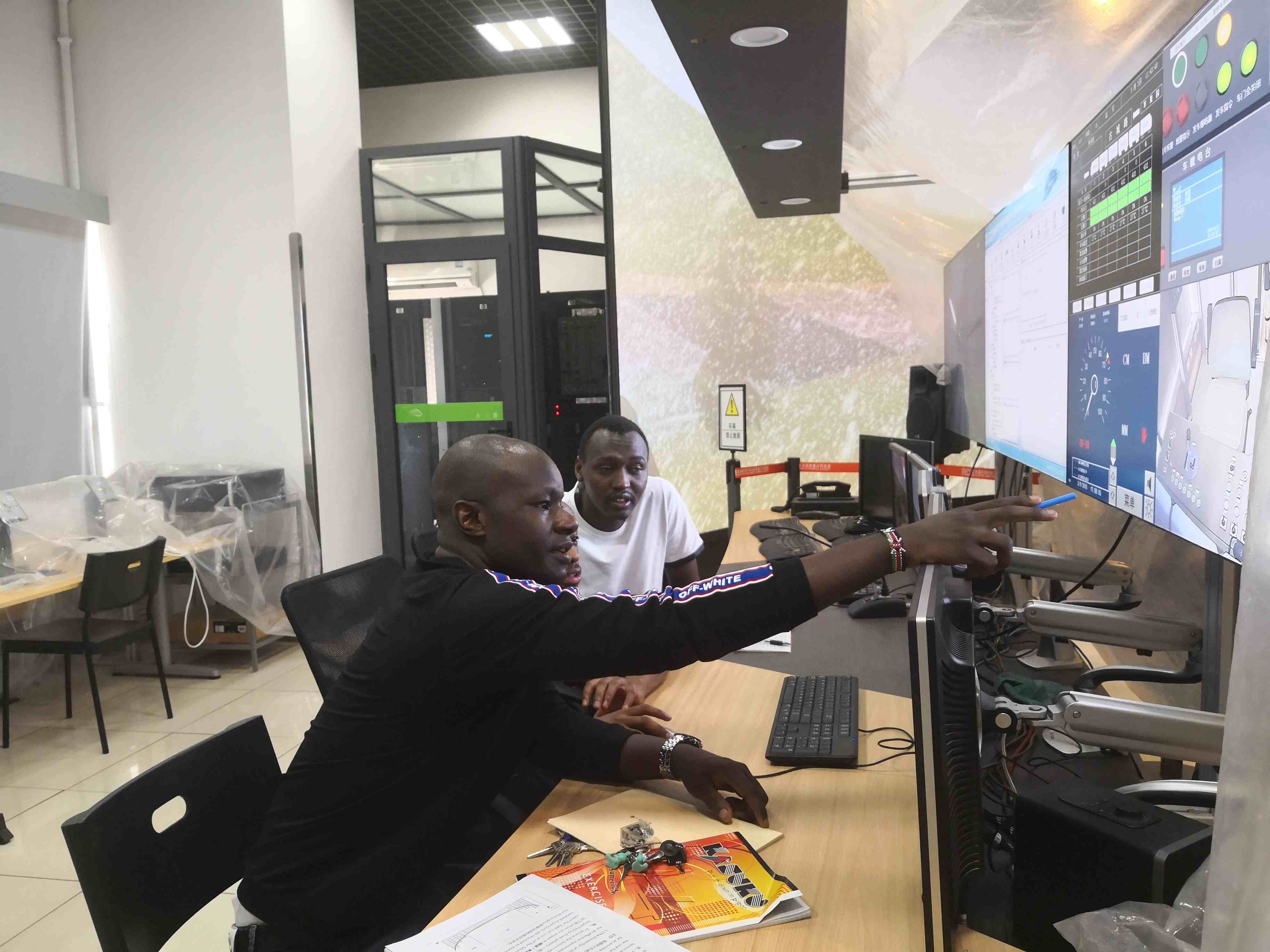02:29

As the saying goes, it's better to teach someone to fish instead of simply giving him a fish to eat. An international training program under the Belt and Road Initiative has invited Kenyan students to study railway engineering in China. After graduation, these students plan to work on the Chinese-constructed Mombassa-Nairobi Standard Gauge Railway. This is also part of a long term plan for Chinese enterprises to hand the railway over to locals.
The first lecture of the new school year kicks off on Sept. 3 for Clinton in Beijing Jiaotong University. It's been two and a half years since Clinton and another 22 Kenyan students studied railway engineering here, as the pioneers of the undergraduate program.

Clinton and his classmates from the Belt and Road Joint Training Program are learning engineering operation at the national-level lab for railway traffic of Beijing Jiaotong University on Sept. 3. /CGTN Photo
Clinton and his classmates from the Belt and Road Joint Training Program are learning engineering operation at the national-level lab for railway traffic of Beijing Jiaotong University on Sept. 3. /CGTN Photo
"Since Chinese people started to work in the rail project in 2014, I had some knowledge of the railway infrastructure. When I was in high school, my dream was to become an engineer. So I could contribute to the development of my country," said Clinton Munene, sharing his engineering dream with CGTN.
Jointly launched by Beijing Jiaotong University and the China Road & Bridge Corporation in 2016, the program aims to train local railway professionals to work on the Chinese-built Mombassa-Nairobi Standard Gauge Railway (SGR). Opening in May 2017, the landmark rail is Kenya’s largest infrastructure project since it gained independence, and also an early fruit of China's Belt and Road Initiative.

Clinton and his classmates talk with CGTN reporter at Beijing Jiaotong University on September 3, 2018. /CGTN Photo
Clinton and his classmates talk with CGTN reporter at Beijing Jiaotong University on September 3, 2018. /CGTN Photo
"It's so important and enjoyable because in the last 100 years, we did not have a reliable and efficient train like what we have now...The journey that used to take eight hours and above, now it only takes some four hours. And it's very punctual as well." Clinton recalled his experience of taking the SGR back home.
But running a railway is no easy task. Skilled staff are in urgent need for the mega project. That's why the Beijing Jiaotong University has taken it very seriously.

Clinton and his classmates from the Belt and Road Joint Training Program are learning engineering operation at the national-level lab for railway traffic of Beijing Jiaotong University on Sept. 3. /CGTN Photo
Clinton and his classmates from the Belt and Road Joint Training Program are learning engineering operation at the national-level lab for railway traffic of Beijing Jiaotong University on Sept. 3. /CGTN Photo
"This is the first collaboration of its kind with the China Road & Bridge Corporation. We take it very seriously. All engineering courses here are taught in English, and we've also worked closely with Chinese railway vocational colleges to help students gain practical skills each summer," said Liu Yanking, director at the school's center for international education.
That's why Clinton says he already feels confident enough to directly take on the position upon graduation in 2020. "We have gone to the workshop where the trains are being assembled. We have gone to other workshops where the signaling and communication used in our country. We have been shown this is how trains are designed and assembled. So we have all the knowledge that is needed in our country," added Clinton.

It’s been two and a half years since Clinton and another 22 Kenyan students studied railway engineering here, as the pioneers of the undergraduate program. /CGTN Photo
It’s been two and a half years since Clinton and another 22 Kenyan students studied railway engineering here, as the pioneers of the undergraduate program. /CGTN Photo
So far, the program has fully sponsored 100 Kenyan students. Liu Yanking says, with the expansion of East African railway networks, the program is expected to cover more countries along the Belt and Road.
In 2017, the number of students from countries and regions along the Belt and Road increased by more than 10 percent, reaching over 300,000 studying here in China. It's a trend experts say should continue.






